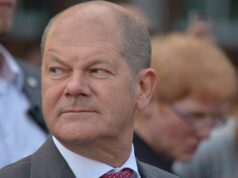According to information from the German Press Agency, the committee will first speak more specifically about aid for structural change in the regions affected, such as Lusatia, before a plan for the carbon leakage is lashed. The Federal Government therefore wants to extend the work of the commission until January, as it was called on Wednesday from commissions circles. First, the „Frankfurter Allgemeine Zeitung“ reported on it. The environmental organizations involved protested violently.
The coal states of Brandenburg, Saxony and Saxony-Anhalt had called for improvements in structural measures. „Every premature exit date must be linked to the prerequisite of successful structural change“, the prime ministers of Saxony and Brandenburg, Michael Kretschmer (CDU) and Dietmar Woidke (SPD), demanded in a letter to Chancellor Angela Merkel (CDU). They demanded provisions for a long-term fed by the federal funds, a measure law similar to the Bonn-Berlin law and an immediate program for the region.
The commission actually wanted to complete its work this coming Wednesday and present a complete package with details on structural change, shutdowns of hard coal and lignite power plants by 2022 and an exit plan including end date. Only last week, the four chairmen informed the Commission that they were aiming for a result by 28 November, ahead of schedule. According to the mandate, the Commission will have time for its final report by the end of the year.
Coal-fired power plants are particularly harmful to the climate. The Commission should therefore also propose measures on how Germany can achieve climate protection goals.
Meeting of the coalition leaders in the chancellery
The new timetable was decided on Tuesday evening at the meeting of coalition leaders in the Chancellor’s office, the German press agency learned from coalition circles. The co-chairman of the commission, Rail Board Ronald Pofalla, had been informed. The Union faction had also come to the conclusion that things did not go on, they said. The Commission would first have to advise on concrete structural assistance for the coal-mining regions. In addition, it had to be ensured that electricity prices „did not get out of hand“.
Merkel said in the Bundestag on Wednesday that the future of those affected should be placed at the center of the Commission. It was about „bringing climate change on one side and the future for people in line,“ stressed the Chancellor. „It’s not about deciding any exit data first, it’s about giving people hope, giving them a future, really preparing for structural change.“
Sharp criticism came from environmental associations. „We would like to protest strongly against this and urge you to stay with the originally agreed timetable“, commission members Martin Kaiser (Greenpeace), Kai Niebert (German nature conservation ring) and Hubert Weiger (BUND) wrote to the chairmen. The impression that federal and state politicians were trying „to influence the work of a civil society commission and its recommendations at will“ was „completely incomprehensible“. For the next scheduled meeting next Monday, they demanded a debate.
Clear signals required for climate protection
„As chairwoman, we expect clear signals that climate protection is now on the agenda and that there is no postponement of the completion of the commission’s work. Otherwise, you risk a civil society consensus and with it the chance of a structural development for the lignite mining regions, „wrote the three environmental associations.
Already during the dispute over the Hambacher Forst in North Rhine-Westphalia, which was to be dredged for lignite opencast mining, the environmental associations had put pressure. If they were to leave the Commission, there would not be a broad-based compromise between business, politics and climate change activists as planned.



